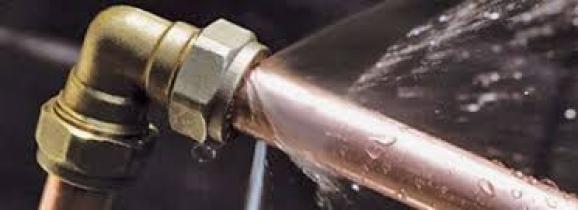The Residential Common Common Triggers of Leakage: In-Depth Analysis
The Residential Common Common Triggers of Leakage: In-Depth Analysis
Blog Article
Right here in the next paragraph you can get lots of high-quality points when it comes to How to detect water leaks in your home.

Leakages not just trigger waste of water however can additionally cause unneeded damage to your home as well as advertise undesirable natural development. By looking and understanding for everyday circumstances that create leakages, you can shield your home from future leaks and also unnecessary damages.
Instant temperature changes.
Severe temperature level adjustments in our pipelines can create them to increase and acquire all of a sudden. This expansion as well as contraction may create fractures in the pipelines, especially if the temperature are below freezing. It would be best if you kept an eye on how your plumbing functions. The existence of the formerly pointed out situations regularly indicates a high danger.
Corroded water supply
As time goes by, your plumbing system ages and also rust such as corrosion may begin eating away the pipes. This could be the cause of discoloration or bending on your water pipes. This asks for an evaluation with your plumber immediately. If our plumbing system is old, consider changing the pipelines since they go to a greater danger of rust than the newer models.
Defective Pipeline Joints
Pipeline joints can deteriorate over time, resulting in water leaks. If you have noisy pipelines that make ticking or banging sounds, specifically when the warm water is turned on, your pipe joints are probably under a lot of pressure.
Trespassing roots
A lot of water leakages start outside your home instead of inside it. If you discover an unexpected reduction in water pressure, say in your faucet, require time to head out as well as examine your yard. You could see damp patches or sinkholes in your yard, and that might mean that tree roots are invading water lines causing water to permeate out. You can have your plumber look for invasion, particularly if you have trees or shrubs near your residential or commercial property.
Poor Water Connectors
At times, a leakage can be triggered by loose hoses and pipelines that provide your home appliances. In situation of a water connections leakage, you might discover water running directly from the supply line or pools around your home appliances.
Clogged Drains
Clogged drains pipes may be frustrating and inconveniencing, but they can sometimes end up creating an overflow bring about break pipelines. Keep eliminating any products that may drop your drains pipes that could obstruct them to prevent such aggravations.
All the above are sources of leaks however not all water leaks arise from plumbing leaks; some leaks might come from roof covering leakages. All leaks need to be repaired quickly to prevent water damage.
Leakages not only cause waste of water however can also cause unneeded damages to your house as well as promote unwanted organic development. By looking as well as recognizing for everyday scenarios that cause leaks, you can shield your home from future leakages and also unneeded damage. Today, we will look at six leakage creates that might be causing your pipes to leak.
At times, a leak can be triggered by loosened hose pipes and also pipelines that provide your devices. In case of a water links leak, you may discover water running directly from the supply line or pools around your appliances.
How To Check For Water Leak In Your Home
How To Check for Leaks
The average household's leaks can account for nearly 10,000 gallons of water wasted every year and ten percent of homes have leaks that waste 90 gallons or more per day. Common types of leaks found in the home are worn toilet flappers, dripping faucets, and other leaking valves. These types of leaks are often easy to fix, requiring only a few tools and hardware that can pay for themselves in water savings. Fixing easily corrected household water leaks can save homeowners about 10 percent on their water bills.
To check for leaks in your home, you first need to determine whether you're wasting water and then identify the source of the leak. Here are some tips for finding leaks:
Take a look at your water usage during a colder month, such as January or February. If a family of four exceeds 12,000 gallons per month, there are serious leaks.
Check your water meter before and after a two-hour period when no water is being used. If the meter changes at all, you probably have a leak.
Identify toilet leaks by placing a drop of food coloring in the toilet tank. If any color shows up in the bowl after 10 minutes, you have a leak. (Be sure to flush immediately after the experiment to avoid staining the tank.)
Examine faucet gaskets and pipe fittings for any water on the outside of the pipe to check for surface leaks.
Undetected water leaks can happen without the home or business owner even realizing. If you suspect a water leak, but not able to find the source. It is time to contact a professional water leak detection service, The Leak Doctor.
How To Find a Water Leak In Your Home
https://www.leakdoctor.com/blog/How-To-Check-For-Water-Leak-In-Your-Home_AE197.html

I am just very intrigued by How to detect water leaks in your home and I really hope you appreciated the entire piece. Enjoyed our posting? Please share it. Let another person check it out. Kudos for your time. Don't forget to visit our blog back soon.
Water woes? Connect. Report this page